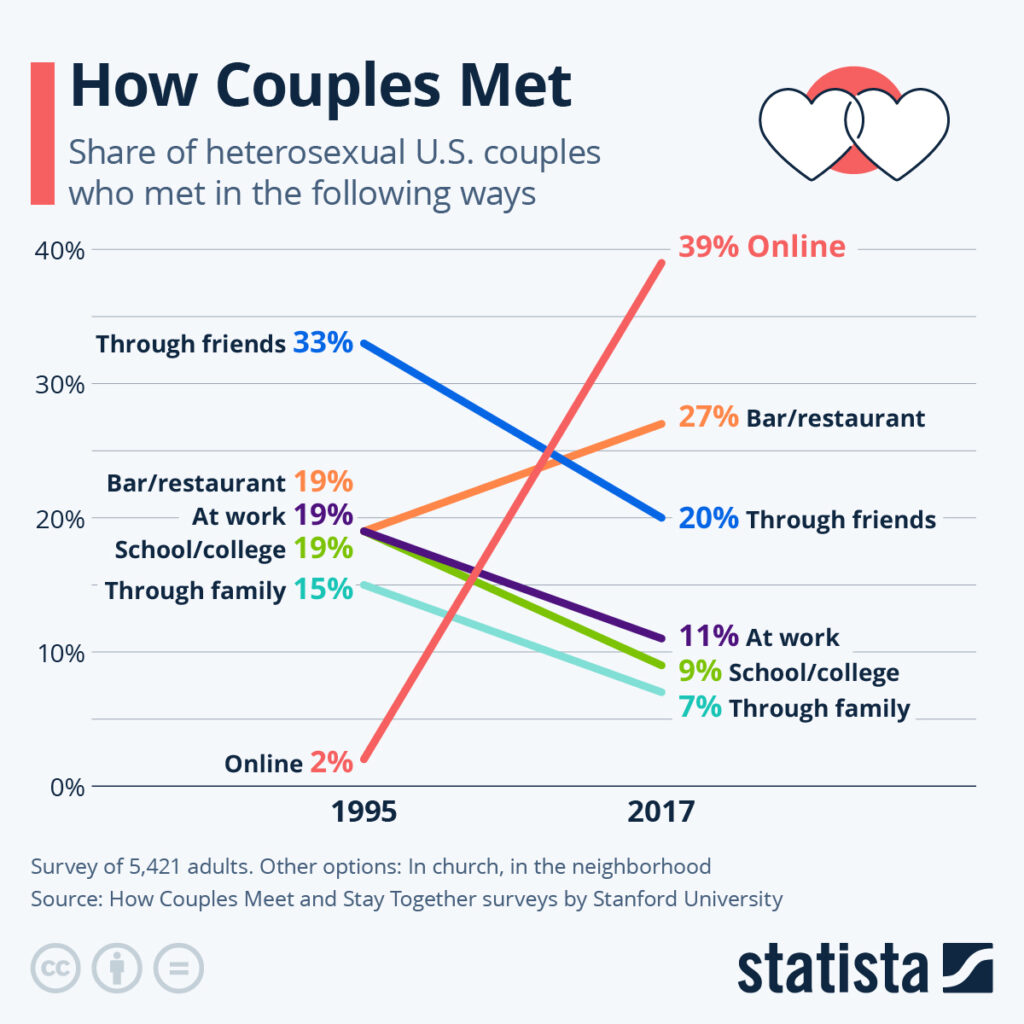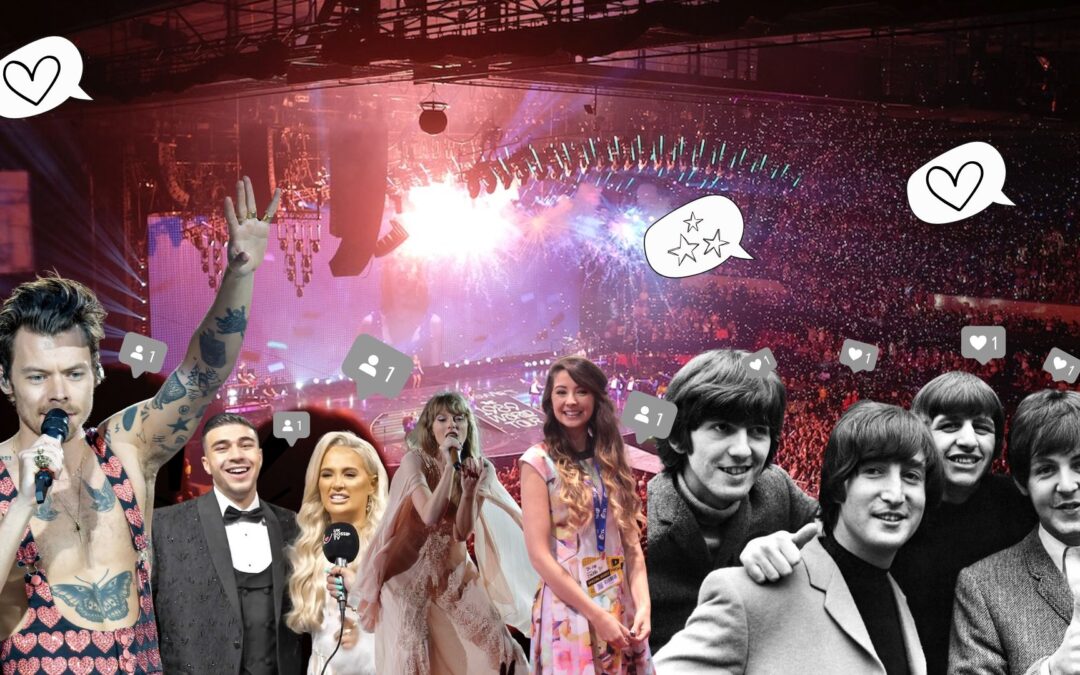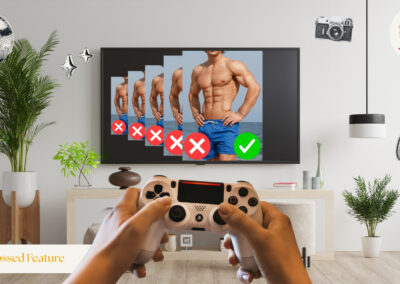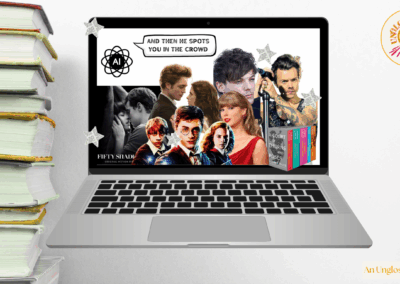Online dating is sold as the modern, convenient way of meeting people. But for many, it just feels like browsing a catalogue or playing a video game on your phone.
Since the early days of online matchmaking, apps like Tinder and Hinge have massively grown in popularity, along with the rise of social media and the convenience of our smartphones. These apps have taken over the world, quickly becoming the most popular way in which singles meet.

Recently, Tinder announced that premium subscribers will be able to filter other profiles by height, a choice which has triggered social media backlash. Users, particularly men, claimed that this will make dating apps feel even more superficial, like trying to unlock the perfect character in a video game.
Relationship expert, and Head of Clinical Practice at Relate, Ammanda Major says this comparison isn’t far off: “I can see why people might say it feels like a game because it’s so quick. You can get rid of bits you don’t like the look of, it doesn’t commit you to anything. You can roam around and have a look without being under obligation to anybody.”
That combination of control, speed and low stakes creates a dynamic where swiping becomes less about connection, and more about instant gratification.
“It’s something immediate that is there for you,” Ammanda says. “If you’re feeling stressed or unheard, It’s almost like an easy pastime.”
Just like video games, dating apps give users hits of dopamine every time they get a match, a like, or a message, according to Dr David Greenfield speaking to Headspace.
Gen Z on social media have frequently been referring to apps like Hinge and Tinder as their favourite “games” on their phone, and even joking that, embarrassingly, it’s all they have when younger siblings ask to play something. While many evidently still use these apps for their intended purpose, to others, they are simply entertainment. Arguably, this takes away from how “real” any of the profiles that come up seem to us.

But for those who use dating apps seriously, the highs and lows can be an emotional rollercoaster. When matches dry up or conversations go nowhere, users are often left wondering what’s wrong with them, rather than questioning the app’s design.
Ammanda says: “The impact of constantly being rejected or ghosted on dating apps, it can be very crushing.” She explains that repeated micro-rejections, even from strangers, can build up into something more lasting. “The internal experience of being constantly swiped over is very intense, very alienating and very isolating.”
Unlike real-world interactions, where rejection is less frequent and more nuanced, dating apps expose users to a constant stream of silent no’s.
“You can have a new interaction with somebody every day, and you get past a conversation and then they don’t want anything to do with you, and that happens to you 2 or 3 times a day. In real life, that probably wouldn’t be happening, because how do you reach all these people on the same day?”
That rejection can lead to emotional burnout. What begins as casual fun can slowly chip away at confidence, especially for those already feeling vulnerable: “If you felt vulnerable beforehand, say, you’ve come out of a relationship and you keep getting blocked or ghosted, the impact on your mental health and sense of confidence can be very, very profound.”
What complicates things further is the pressure to put forward the best version of yourself, or as some describe it, your “avatar”. Choose its outfit, photos, attitude, and whatever else you want to show the other players.
“You’re presenting yourself and your best self,” Ammanda explains. “Dating apps just reinforce that in a much stronger way.” Even if both people are doing it, it creates an environment where no one feels safe being flawed, or real.
That pressure to curate can also make people feel disposable. When everyone’s a thumbnail and a punchy bio, it’s easy to start seeing, and feeling like just another face in the feed: “You don’t actually know that you’re looking at anything real,” Ammanda says. “And especially if you haven’t been entirely truthful about your own profile.”
Even when things go well, when you match, chat, maybe even meet, the crash can still come: “You can present that really intensely wonderful version of yourself,” she says. “But when you do meet, if they see that you don’t quite look like you presented yourself, there’s a bit of a crash there.”
Despite this, Ammanda doesn’t demonise dating apps. In fact, she sees their potential when used with clarity: “Dating apps are great when they are, and they’re not great when they’re not,” she says. “It’s useful when you see them for what they are. You use them as you wish, but they don’t take over your life because real life is out there.”
So the next time you’re ghosted, unmatched, or just left staring at an empty inbox, don’t take it personally, take a break. Because in a game built to keep you playing, the most radical move might just be logging off.











